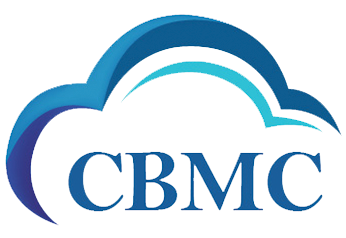Welcome to CBM Consulting’s comprehensive guide on VAT rules in the UAE for the years 2024–2025. As businesses and individuals registered for VAT in the UAE market, staying updated with the latest regulations and compliance requirements is paramount for smooth operations and financial health. At CBM Consulting, we understand the complexities of VAT laws and aim to assist businesses with expert guidance and compliance services to ensure seamless adherence to regulations.
Understanding VAT in the UAE:
Value Added Tax (VAT) was introduced in the UAE in 2018 as part of the government’s efforts to diversify revenue sources and enhance the country’s economic sustainability. Since its implementation, VAT has become an integral part of business operations, requiring entities to collect and remit VAT on taxable supplies of goods and services.
Key Updates for 2023–2025:
2023:
- January: Introduction of the Reverse Charge Mechanism (RCM): Implemented to combat tax fraud, RCM shifted the responsibility of VAT payment from the supplier to the recipient for specific transactions. Businesses need to ensure compliance with RCM requirements to avoid penalties.
- February: Enhanced Digital Reporting Requirements: The UAE tax authorities introduced enhanced digital reporting requirements for VAT filings, mandating businesses to submit VAT returns electronically through the Federal Tax Authority’s online portal. Compliance with digital reporting is essential to avoid fines and penalties.
- March: Voluntary Disclosure of VAT Errors: Businesses can voluntarily disclose VAT errors since March 2023, avoiding penalties and legal consequences. This promotes transparency and encourages proactive rectification of mistakes.
- June: VAT Tax Clarification: Measures for VAT clarity, including tax circulars and clarifications, were introduced in June 2023. The FTA aims to minimize confusion, providing comprehensive guidelines for businesses to understand their VAT obligations better.
Ongoing:
- Expansion of VAT Scope: The government periodically expands the scope of VAT to include additional goods and services, affecting various sectors. Staying informed about these expansions is crucial for accurate VAT compliance.
- Implementation of VAT Refunds: VAT refund schemes for tourists and qualifying businesses have been introduced, facilitating international trade and tourism. Businesses must understand the eligibility criteria and procedures for claiming VAT refunds.
- Enhanced Enforcement Measures: The UAE tax authorities have intensified efforts to combat tax evasion and ensure VAT compliance. Businesses must maintain accurate records and adhere to reporting deadlines to avoid penalties.
Amendments Related to VAT rules in UAE:
- Introduction of Excise Tax: Besides VAT, the UAE has implemented Excise Tax on goods deemed harmful to public health or the environment, such as tobacco and sugary drinks. Businesses involved in these goods must comply with Excise Tax regulations in addition to VAT.
- Digital Services Tax: Measures to tax digital services provided by foreign entities to residents in the UAE have been introduced. This includes online streaming services and digital advertising. Businesses operating in the digital space should assess their VAT obligations related to digital services to ensure compliance.
- Administrative Changes: Amendments to administrative procedures, such as updates to VAT registration requirements or changes in reporting formats, may affect how businesses manage their VAT obligations. Staying updated on administrative changes is crucial for maintaining compliance with VAT regulations.
Additional Insights for VAT rules in UAE 2023 & Beyond:
- Extended Time for a Tax Audit: The new VAT rules allow tax authorities to extend the time for conducting tax audits, ensuring a more robust assessment of businesses’ VAT compliance.
- Tax Evasion: To combat tax evasion effectively, the UAE has strengthened its measures and penalties, imposing severe consequences on individuals and businesses found guilty of tax evasion.
- Tax Audit After Voluntary Disclosure: Even after voluntary disclosure of VAT errors, businesses can still be subject to a tax audit, emphasizing the importance of accurate VAT reporting and record-keeping.
- Good News for 100% Exporters: Businesses engaged in 100% export activities are eligible for zero-rating of their supplies, enabling them to recover input tax paid on goods and services used for export activities.
- Failure to Obtain VAT Registration: Failure to obtain VAT registration when required can lead to severe penalties and legal consequences, highlighting the importance of understanding registration obligations.
- Additional Compliance for Import of Services: Businesses importing services are subject to specific compliance requirements related to claiming input tax credit, necessitating careful adherence to regulations.
- Deemed Supplies to Related Parties: Specific provisions for deemed supplies to related parties have been introduced, requiring businesses to understand and comply with these rules to avoid potential VAT implications.
- Construction Sector and Retention Payments: The construction sector has specific VAT rules, especially regarding retention payments, necessitating careful consideration for accurate VAT compliance.
Conclusion:
Navigating VAT rules in the UAE requires a proactive approach and staying informed about the latest updates and amendments. At CBM Consulting, we are dedicated to helping businesses understand and comply with VAT regulations, ensuring smooth operations and mitigating risks. Contact us today to learn more about our VAT services and how we can assist you in achieving VAT compliance and optimizing your tax position.
FTA Compliant VAT Services in UAE:
To ensure compliance with the VAT rules in the UAE, it is crucial for businesses to seek assistance from FTA compliant VAT service providers. Choose CBM Consulting for expert VAT services in the UAE. Our VAT consultants ensure FTA compliance, guiding businesses through the intricate VAT landscape. Stay informed, avoid penalties, and contribute to UAE’s growth with CBM Consulting – your trusted partner for VAT services in the UAE.
For more information and queries, you may always Call us at +971 4335 8373 Write us an email at: [email protected] or visit us at www.cbmc.ae.


